Engaging with your vet can sometimes feel like a game of catch-up amidst their busy schedules. In the hustle of exams and consultations, it's easy to feel that your concerns take a backseat.
However, building a strong rapport with your veterinarian is pivotal for your pet's well-being.
A thoughtful conversation can make the difference between identifying a minor issue before it becomes major or understanding the nuances of your pet's behavior.
Moreover, understanding how to converse effectively ensures you have the right knowledge to care for your furry friend.
This guide illuminates the path to effective communication, ensuring that every query, from fleas to feline aging, gets the attention it deserves.
Plan Ahead
Make a list of questions before you go to the appointment. It’s easy to get sidetracked, especially if Kitty does something cute (or embarrassing) during the exam.

You don’t want to get home and realize, oops, forgot to ask the most important thing.
When the vet comes into the room, mention you have some concerns you’d like to discuss after she checks Kitty over.
That way, you’ll both remember, and the vet won’t be off to the next appointment before you can get the list out of your pocket.
During The Appointment
Take notes as the vet talks. You don’t want to get home and not be able to remember just what he or she said to do.
Tell the vet, “If I don’t understand something while you’re talking, I’ll just raise my hand, okay?” It will keep his attention more focused on you that way.
It’s not hard to ask questions of the vet. Mostly, just let him know you have questions to ask, keep to the point, and say thanks when you’re done.
What To Ask Your Vet
Keep your questions to the point. The vet’s time is as valuable as yours, so don’t say things like, "My friend has a cat who…" Keep on the topic of your own cats and concerns about them.
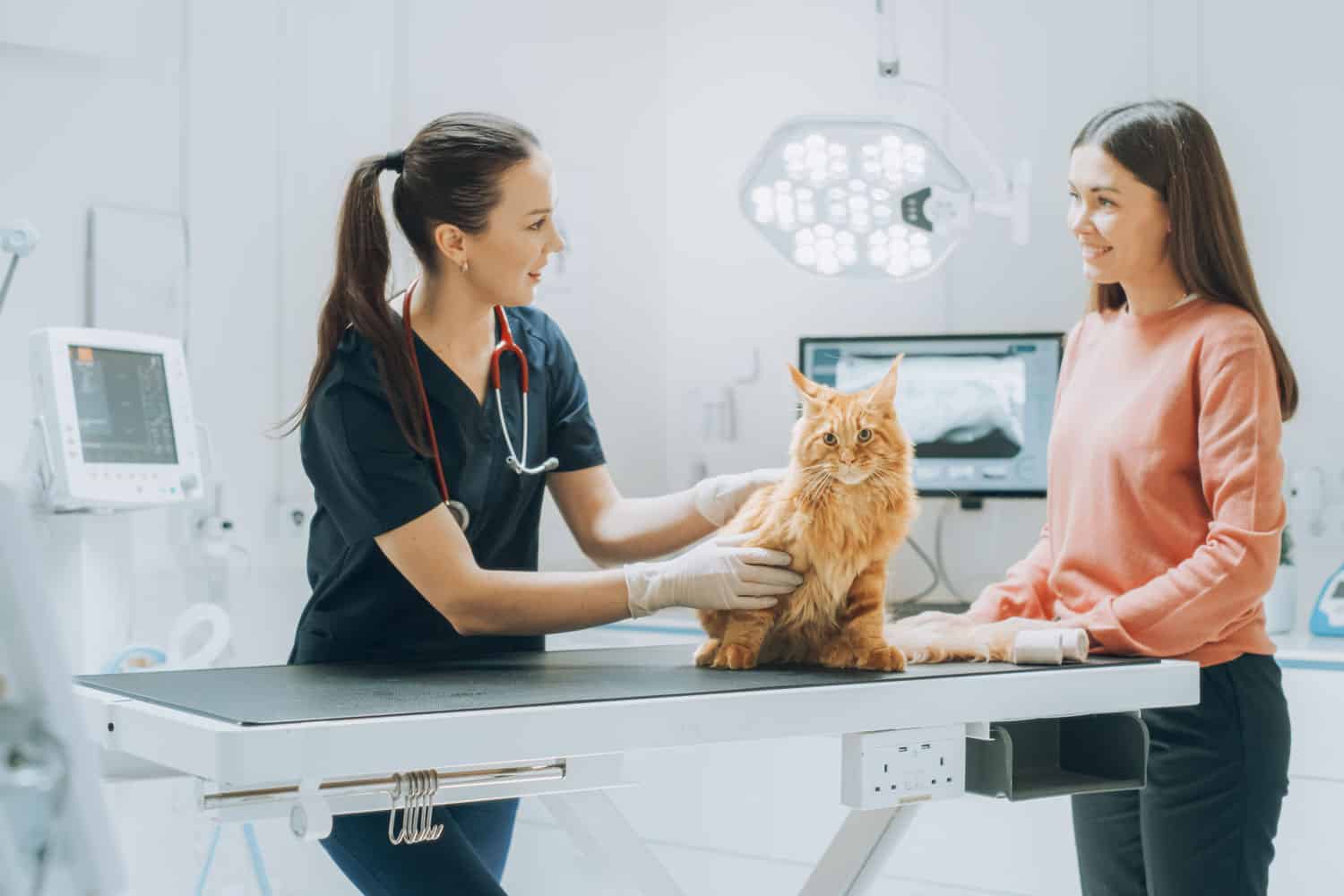
New Cat Concerns
Your concerns might be more about parasites or diet for a rescue cat, whether from a shelter or off the street.
You’ll need to know which tests are done and why. Many times, rescues are gluttonous little guys.
They never know when the next meal will be so they take advantage of any food they see. This might include the food on your dinner plate if you’re not fast enough.
SIGN UP FOR THECATSITE'S EMAIL UPDATES >
Behavioral Issues With Your Cat
The vet might not be much help if Kitty is just showing signs of youthful exuberance, but sometimes weird behavior indicates a physical problem.
Older cats may walk around the house crying. Kitty could just be complaining in general or saying she’s in pain.
Your Cat's Diet
Weight gain or loss is always a concern, especially if the change is sudden. Questions are definitely a must in those cases.
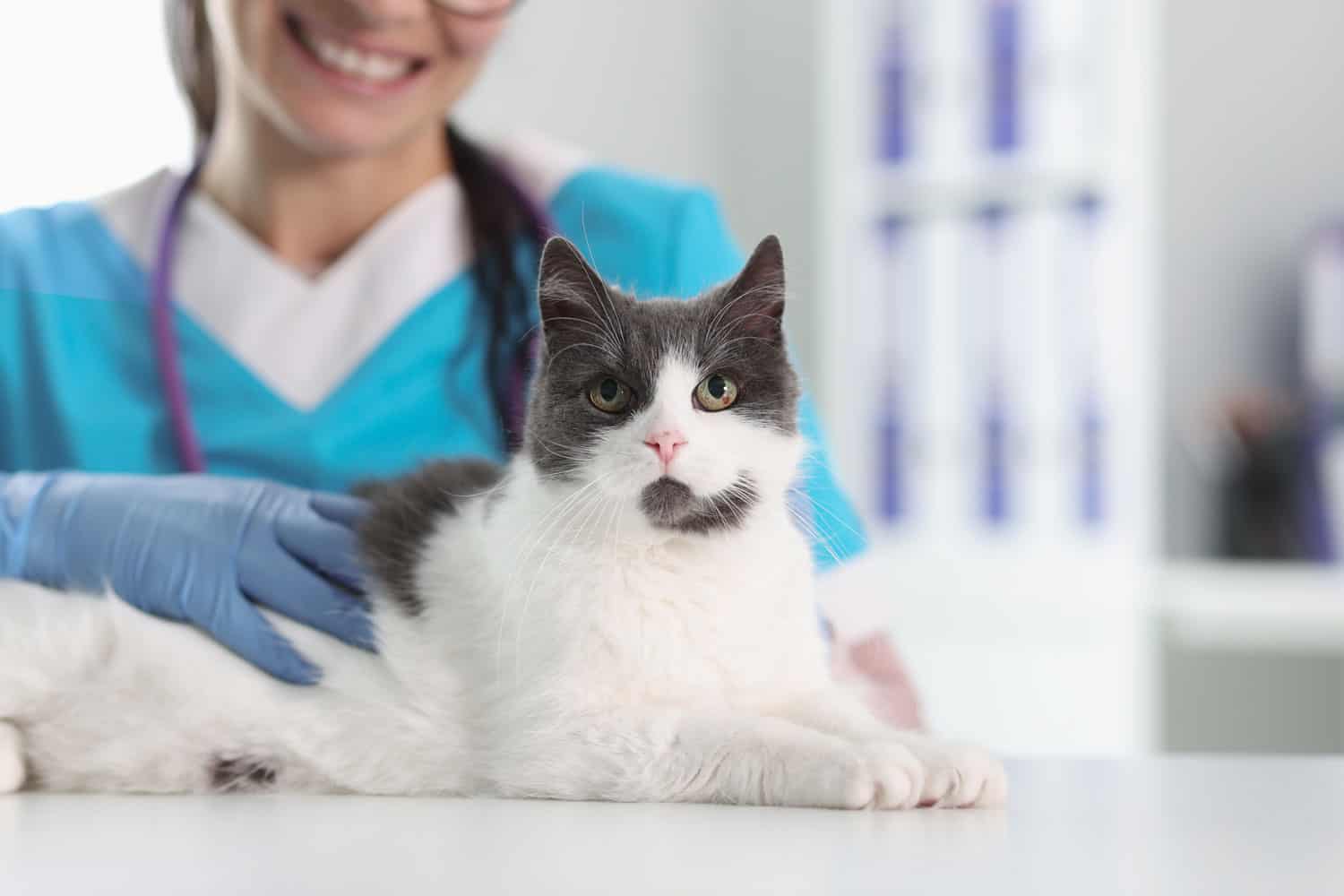
Regardless of fluctuations in the cat's weight, your vet should be the first one you should talk to about Kitty's diet.
While he or she may not be a feline nutrition expert, your vet should be able to tell you if your cat's medical condition requires specific nutritional adjustments, and may refer you for a consultation with a proper pet nutritionist.
Other Treatments To Consider
If you're considering changing your cat's diet, adding supplements, or using alternative therapies, you should definitely discuss these with your vets first.
Do your research online prior to the appointment and ask your vet for his or her opinion.
Establish Follow-Up Protocols
Hopefully, the first is to discuss how to reach the vet for follow-up questions during an appointment.
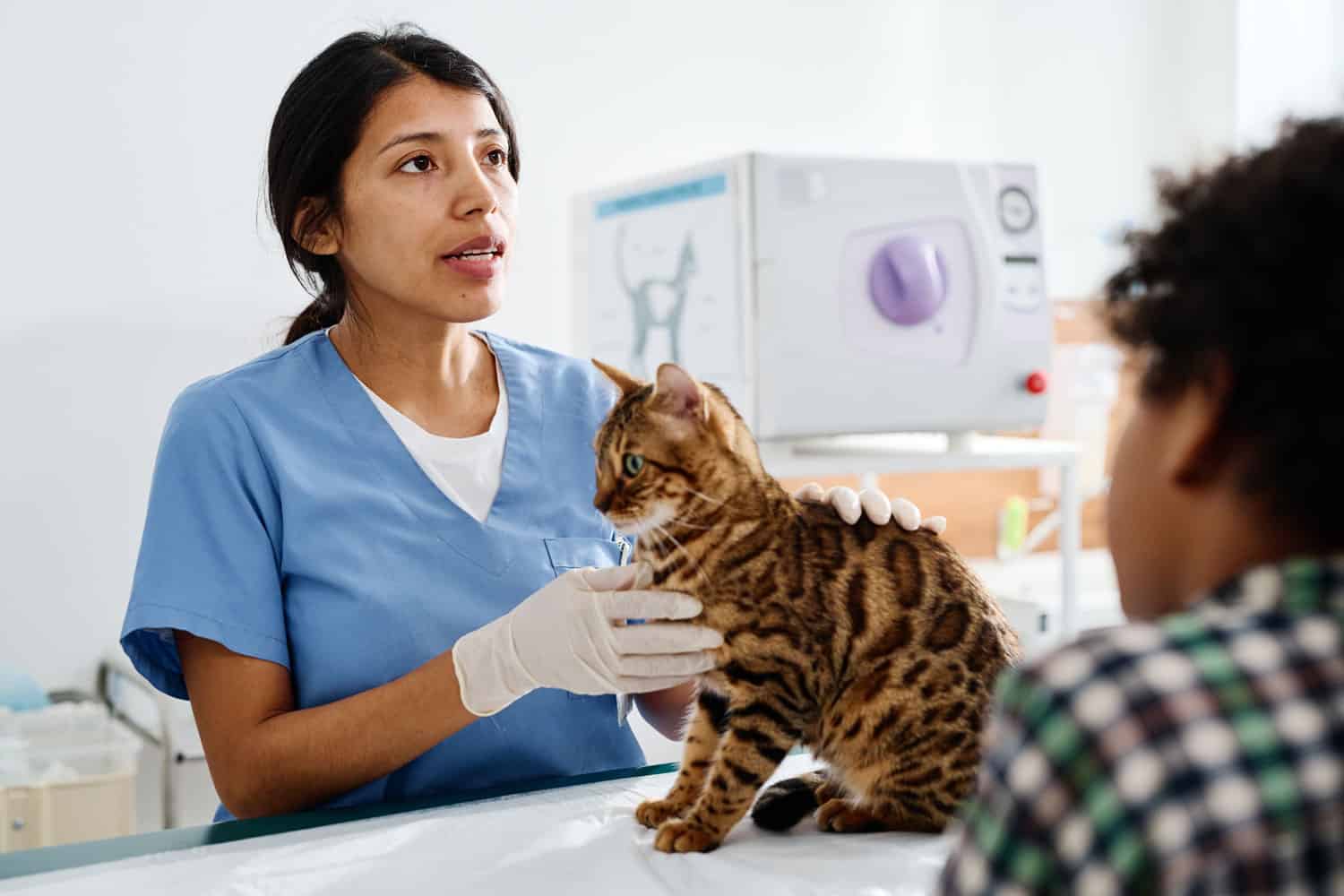
Ask about return phone calls: If you have a question, are calls returned the same day? When is it okay to do what the vet tech says without talking to the vet himself?
If it’s an emergency, will the staff break in on an appointment to put your call through? When you do make that call, keep it short.
You wouldn’t want your appointment to run behind or be interrupted by another client.
Emails are a great way to communicate with your vet. Some vets use email regularly, while others rely on their staff to print out emails and relay their replies via phone.
Talk to your vet and see if email works for them, or if they prefer phone calls. When writing an email, read it several times before hitting the "Send" button.
Make sure it's short and precise, yet recaps all the important details and clearly sums up your questions.
Having open lines of communication between you and your vet is very important for your cat's health.
Don't be shy, and don't hesitate to get all the information you need. It is in the best interest of all concerned.
Wrapping Up Your Veterinary Conversations
In the realm of pet care, communication stands as a linchpin. As we navigate the journey of pet ownership, the wisdom we gain from our vets becomes invaluable.
It's not just about asking questions; it's about fostering a partnership where both owner and veterinarian work in tandem for the pet's welfare.
Remember, every conversation with your vet is an opportunity to learn, grow, and provide the best for your furry companion. Embrace it.
SIGN UP FOR THECATSITE'S EMAIL UPDATES >
Comments? Leave them using the form below. Questions? Please use the cat forums for those!
We got some more related topics about this matter, check them out below.
How To Choose The Best Veterinarian For My Cat?
Cat Vet Checkup – What To Expect
Note: We may get commissions for purchases made through links on this page.

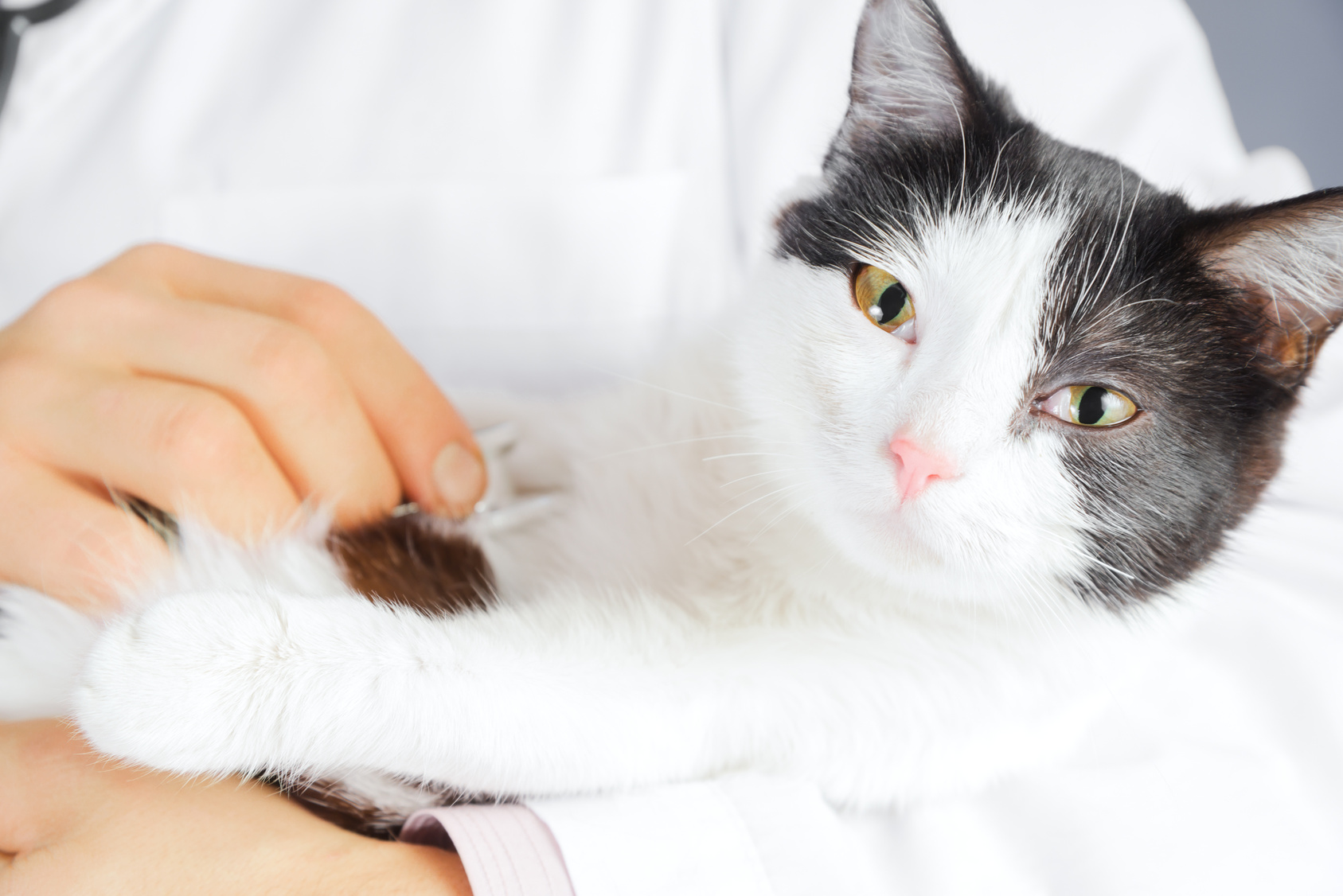
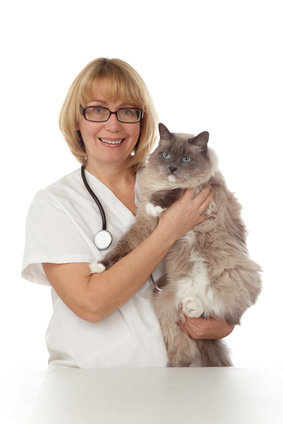

3 comments on “How To Talk To Your Vet [Building A Trusting Relationship For Better Pet Care]”